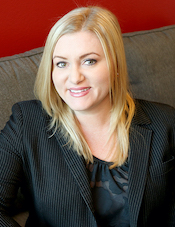 Lindsey Carnett Lindsey Carnett |
Many are keen to return to a vacation following two years of lockdown’s travel restrictions. Reconnecting with friends and family, exploring new destinations or revisiting old favorites, lots of travelers are looking forward to boarding a plane, train or boat and escaping from the return to everyday life.
Lockdown had a profound effect on the global travel and tourism industry. Stats published earlier this year paint the stark reality of the pandemic’s impact: Global revenue for the industry is estimated to be $396 billion, a decrease of around 42.1 percent from 2019. It’s also significantly lower than the original 2020 forecast of around $712 billion.
McKinsey reports that traveling is the second-most desired activity, and passengers are returning to air travel once more. Hotel reservations and rental car bookings are also increasing.
To capitalize on the return to travel, the hospitality industry—and hotels in particular—know that they must invest in good communications advice. From print, digital and broadcast campaigns to working with influencers and collating recommendations, the whole process of communications and strategic thinking is vital to creating a good quality hotel experience.
| This article is featured in O'Dwyer's Jul. '22 Travel & Tourism PR Magazine (view PDF version) |
The price that hotels pay for and expect from branding professionals is rightly one of high quality. For them to offer a good service, they expect a good service from their communications professionals. Guest personalization is of particular focus for hotels and the hospitality industry. As travelers ourselves, we can all recall the trips and stays at hotels where we received personalized attention and a memorable stay.
But this high standard and expectation is under threat with the changes to the hospitality industry. It’s estimated that roughly 62 million people lost their jobs in the global travel and tourism sector in 2020, and with many more deciding that the global pandemic has necessitated a career change, large amounts of corporate memory and thousands of dollars of training and experience are leaving the industry and walking out of the door.
While this problem can’t be solved by communications alone, marketing and brand professionals do have a role in helping to shore up retention and in turn, create a good quality hotel experience.
How can they do this and use communications to provide a good quality hotel experience?
Resist the urge to oversell the experience. Trying to make up for lost ground can encourage the urge to oversell or overhype what a customer will receive. Media familiarization trips are a positive way to get the press on-side as well as introduce them to the full experience. “Keeping it real,” such as providing an immersive trial of facilities, rooms and hospitality, providing exactly what guests will receive can help brands to avoid overpromising and under-delivering.
Invest in special training. As hotels begin to fully open and offer their complete range of services once more, now is perhaps more important than ever to invest in special training for staff. From a communications perspective, it’s a good way to show how to engage with members of the press and social media influencers, providing examples and insights into what questions they will ask, what content they like to create and what you should and shouldn’t say.
Reflect the core messages accurately. Staff training should also be used to reflect the messaging integral to what the brand is promising as part of the guest experience. This starts right at the door: from check-in, bellmen interaction, elevator maintenance, room amenities, room service, dining and culinary service, spa, pool and gym and service, concierge assistance, checkout experience and interactions with the housekeeping staff. The whole process matters and can make a huge difference to a positive or a bad stay.
Download the knowledge. There will inevitably be staff who will leave the hospitality sector; it’s the cyclical nature of the industry. But it’s important for communications staff to work with their departing colleagues to get their feedback and any information that would be useful. This could be how they dealt with a bad customer experience: turning it into a good one. Or perhaps listening to their ideas on how the hotel or venue can improve. Whatever the situation, conducting an exit chat is a good and productive one for both parties.
Following these steps and utilizing the opportunities that communications can offer can help to improve the hotel industry as we move towards a new way of travel and vacation post the pandemic.
***
Lindsey Carnett is CEO and President of Marketing Maven, a full-service integrated marketing agency that executes the publicity and digital marketing for several destinations, travel events and household name hotels: [email protected]


 Weber Shandwick is providing PR and marketing communications services to the Moroccan National Tourist Office in New York.
Weber Shandwick is providing PR and marketing communications services to the Moroccan National Tourist Office in New York. Finn Partners has filed its six-month contract with the Bahamas Ministry of Tourism, Investments & Aviation, which is worth $240K.
Finn Partners has filed its six-month contract with the Bahamas Ministry of Tourism, Investments & Aviation, which is worth $240K. Weber Shandwick wrapped up its work for the Ministry of Bahamas at the end of 2023.
Weber Shandwick wrapped up its work for the Ministry of Bahamas at the end of 2023. The Aruba Tourism Authority is boosting its budget 29.4 percent to $2.2M at Zeno Group, according to its 2024 contract, effective Jan. 1.
The Aruba Tourism Authority is boosting its budget 29.4 percent to $2.2M at Zeno Group, according to its 2024 contract, effective Jan. 1. As inflation continues to impact spending, consumers are revisiting their list of what they’re willing to spend more of their money on. Luckily for those in the travel industry, experiences seem to be trending up on the “splurge” list.
As inflation continues to impact spending, consumers are revisiting their list of what they’re willing to spend more of their money on. Luckily for those in the travel industry, experiences seem to be trending up on the “splurge” list. 


 Have a comment? Send it to
Have a comment? Send it to 
No comments have been submitted for this story yet.